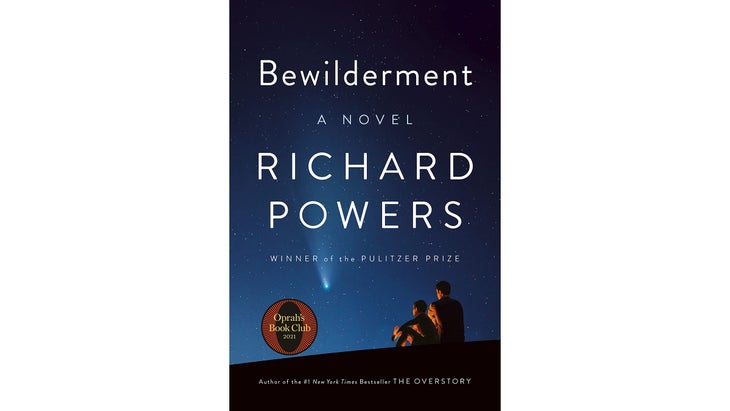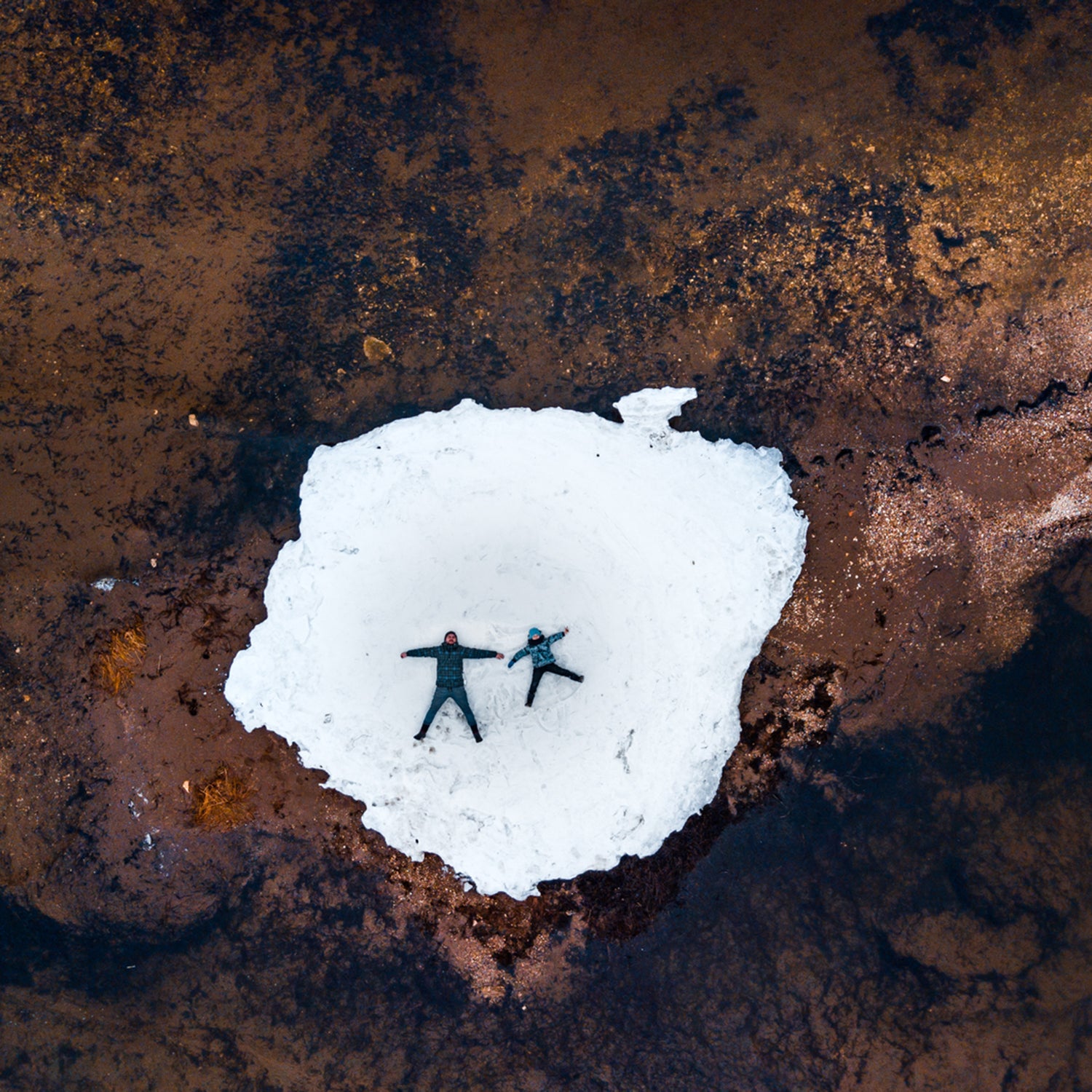We’re relaunching the ���ϳԹ��� Book Club this week, and to celebrate we’re publishing a series on how the booming genre of climate fiction is helping us see our changing planet in a new light. You can learn more about the book club here, or join us on to discuss our October pick, , a new work of climate fiction by Richard Powers.
, the latest novel from Pulitzer Prize–winning author Richard Powers, is the most alarming flavor of dystopian fiction: the kind that feels dangerously, unsettlingly familiar. It’s set in a near future that’s never precisely dated—it could be ten years from now, or five, or one. The American president is a braying autocrat who postpones elections and types only in all caps; the South is flooded, and the West is burning (Carson City, Nevada, and San Bernardino, California, are disposed of in a single sentence); deadly zoonotic pathogens are hopping from livestock to people; violent militias are on the move. The news is a persistent drumbeat of horror, an only slightly amplified version of our own times.
All of that, though, is just the grim backdrop to a more intimate story at the heart of the novel. Unlike Powers’s last book, , a sweeping 500-page epic that follows nine major characters across many years of their lives, Bewilderment unfolds within within a single year, and most of the action involves just two people.

Theo is an astrobiologist whose wife, a leading animal-rights activist, has died in a car wreck. His research focuses on the potential for life elsewhere in the universe: he’s not a UFO hunter but, rather, uses what little we know about the stars and planets outside our solar system, and all that we know about the different ways that life can be sustained, to try to identify places in the universe where another version of life might exist. To that end, Theo uses algorithms, complex calculations, and an imagination fueled by a lifelong sci-fi habit to consider the possibilities.
Increasingly, though, his work is neglected as he struggles to care for Robin, his young son, who was an unusual kid even before his mother’s death. Doctors have offered a range of potential diagnoses, but Theo resists the medicalization of his son, even as the boy diverges further and further from his classmates and his occasional outbursts of rage become more frequent. Eventually, with trouble at school piling up and the threat of social workers hanging over his head, Theo decides to have Robin try an experimental neurofeedback therapy. The rest of the book’s action flows from that decision, as Robin’s personality changes in unpredictable, almost supernatural ways. Among other things, his existing love for animals and wild places becomes more focused and purposeful.
The young climate activist Greta Thunberg has famously and Robin shares a similar starkness of vision. He simply can’t understand how the people around him—Theo included—could be aware of the climate crisis and all its attendant sub-crises, could understand their deadly implications, and still just continue with their lives. “Mom says everything’s dying,” he tells his father one morning, invoking the dead woman who dedicated her life to saving animals, as they argue about whether he should keep attending grade school. “Do you believe her?”
He goes on, “Because if she’s right, there’s no point in school. Everything will be dead by the time I get to tenth grade.”
Theo is left to ponder: “Did I believe her? Her facts were beyond doubt. Everything she claimed was common knowledge to scientists everywhere. But did I believe her? Had mass extinction ever once felt real?” Robin’s urgent clarity on the most important issue of our time contrasts uncomfortably with the apathy that most of us feel every day, even those of us who care deeply about the environment. Confronted with that clarity, I spent a good portion of this novel slightly sick to my stomach.
We are running out of time, Bewilderment seems to say. Get over yourselves. Snap out of it already.
Powers’s writing becomes expansive and lyrical whenever Theo and Robin venture into nature. Their shared love of the wild world is expressed through close attention, and the level of detail serves to invite the reader to pay closer attention, too. On an autumn road trip that the father and son take to the Great Smoky Mountains, Powers writes, “Fog clotted in the mountain folds.”
“Before us, a remnant of a range once much higher than the Himalayas endured as rounded foothills,” he continues a little later. “Lemon, amber, and cinnamon—the whole run of deciduous colors—flowed down the watersheds. Sourwoods and sweet gums covered the ridge in crimson. We rounded the bend into the park. Robin breathed out a long, astonished vowel.”
Powers has always been known for incorporating scientific research into his novels—The Overstory based entire storylines, as well as a key character, on . Bewilderment is similarly built on a foundation of real science. The type of semi-speculative, exploratory space research that Theo does is well established and . , used to treat everything from insomnia, anxiety, and depression to migraines and epilepsy (though scientists its effectiveness as a therapy). Most important, of course, is the fact that the climate crisis is real and accelerating. Floods, fire, plagues, mass animal die-offs—this past summer alone, we’ve seen it all. And still, here most of us sit: tweeting, shopping for more stuff online, dreaming about all the places we’ll fly on passenger jets once the current pandemic abates. Sure, we understand the facts. But do we believe?
Cynicism and apathy abound. The earnestness required to be a dedicated environmentalist is not terribly fashionable these days. I’ve often felt embarrassed to look back at the animal-loving, crusading kid I once was, more sociable than Robin, but nevertheless walking around with a button on my school bag that demanded “Equal rights for all species” and selling off my toys at a yard sale to raise money for the local animal shelter. Theo, too, cringes sometimes as his son launches his naive little campaigns, the child believing he can make a difference.
I can’t tell for sure whether Richard Powers himself still believes that we can make a difference. Comparisons to The Overstory are inevitable, both because that book was enormously successful and influential, and because it was also a call to action for the health of our planet. But I, at least, experienced The Overstory as a gentler book than Bewilderment—it seemed to offer a fantastical epic rather than a dystopian future. Powers’s new novel reads as angrier, or perhaps just more frustrated. We are running out of time, it seems to say. Get over yourselves. Snap out of it already.
Robin’s blunt questions are uncomfortable because we know, keenly, that we don’t have good answers for them right now. We’re failing the next generation, and we’re failing ourselves. While Robin’s classmates might laugh at him, we could all use more of his urgency and empathy.


